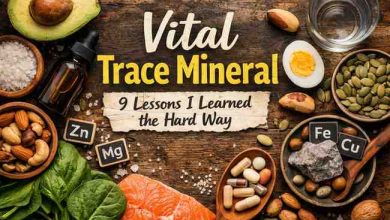
Jump Start Your Health with a Fatty Liver Diet
Fatty liver occurs when too much fat accumulates in the liver. While it is not a serious condition, it can lead to other health issues if it is not managed properly. Want to start on a fatty liver diet and take back control of your health? Natural controls like diet, exercise, and lifestyle changes can make all the difference.
Get Started on a Fatty Liver Diet and Take Control of Your Health
If you’ve been diagnosed with fatty liver, a healthy diet is the key for both prevention and treatment. With a fatty liver diet, professionals aim to reduce liver inflammation, repair liver cells, and improve overall liver health. In this way, a healthy fatty liver diet can reduce the risk of fatty liver-related complications including liver scarring.
Understand How Fatty Liver Happens and How a Fatty Liver Diet Can Help
Fatty liver occurs when too much fat accumulates in the liver. Factors that increase the risk of fatty liver include obesity, insulin resistance and high cholesterol levels. Additionally, poor diet and excessive alcohol consumption can contribute to fatty liver. A healthy and balanced fatty liver diet can help to prevent, reverse, and even manage fatty liver disease.
Taking Stock: Identifying the Possible Causes of Your Fatty Liver
Before beginning a fatty liver diet, it is important to identify the underlying causes of fatty liver. Once the causes are identified, you can then begin to modify and improve certain lifestyle factors like diet and exercise. Speak with a physician or health care provider for a comprehensive assessment to identify factors that could be contributing to your fatty liver.
What to Eat on a Fatty Liver Diet to Promote Liver Health
The primary focus of a fatty liver diet is to reduce fat and promote healthy eating. A diet rich in lean proteins, whole grains, and fruits and vegetables is the best way to meet these goals. Additionally, probiotic and antioxidant-rich foods like fermented foods, green tea, unsweetened yogurt, and nuts can be beneficial for fatty liver disease.
Eating Right: Portion Sizes, Macronutrients and Nutrient Groups
It is important to pay attention to food portion sizes and types of food when following a fatty liver diet. Eating smaller meals and snacks throughout the day can help to manage hunger while keeping blood sugar levels stable. Additionally, balancing the macro-nutrients like carbohydrates, fats, and proteins can help with energy, appetite, and nutrient needs.
Foods to Avoid on a Fatty Liver Diet
It is important to limit certain foods when following a fatty liver diet. Foods to avoid include processed foods, fried foods, sugary snacks and desserts, and alcohol. Additionally, it is important to limit saturated fats, trans fats, and refined carbohydrates. These foods can increase inflammation, raise bad cholesterol levels and contribute to unhealthy weight gain.
Beverages and Supplementation: What are Healthy Options?
Staying hydrated can help to maintain a healthy liver. Water, unsweetened tea, and fresh fruit juices are great hydration options. Additionally, it is important to be mindful of added sugars in store-bought drinks and try to limit your intake of these beverages. Supplements can also be beneficial for improving liver health. Consult with a doctor to determine which supplements may be beneficial for you.
The Benefits of Eating Fermented Foods on a Fatty Liver Diet
Fermented foods can provide a number of health benefits on a fatty liver diet. These include prebiotics that support gut health, probiotics that boost immunity, and antioxidant compounds that help to reduce inflammation and oxidative damage in the body. These foods include kimchi, sauerkraut, yogurt, kefir, and kombucha.
Creating Meal Plans and Eating Out with a Fatty Liver Diet
Meal planning can be helpful for staying on track with a fatty liver diet. Planning ahead for meals can help to save time and reduce the temptation to make unhealthy food choices. Additionally, it is important to be mindful when eating out or ordering food. Try to avoid fried or overly processed foods and opt for steamed, roasted, or grilled options whenever possible.
Conclusion
A fatty liver diet can be an excellent way to jump start your health and keep fatty liver disease in check. Developing a meal plan, incorporating fermented foods, and avoiding unhealthy snacks are just a few of the things to consider when starting a fatty liver diet. With a combination of healthy eating, exercise, lifestyle changes, and natural supplements, you can take back control of your health and start on the path to a healthier and happier lifestyle.








